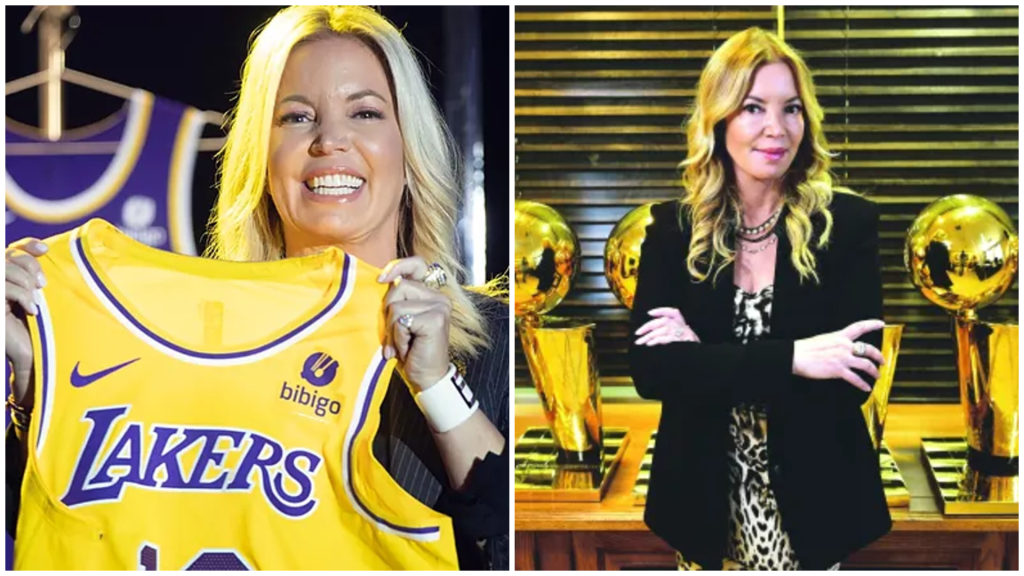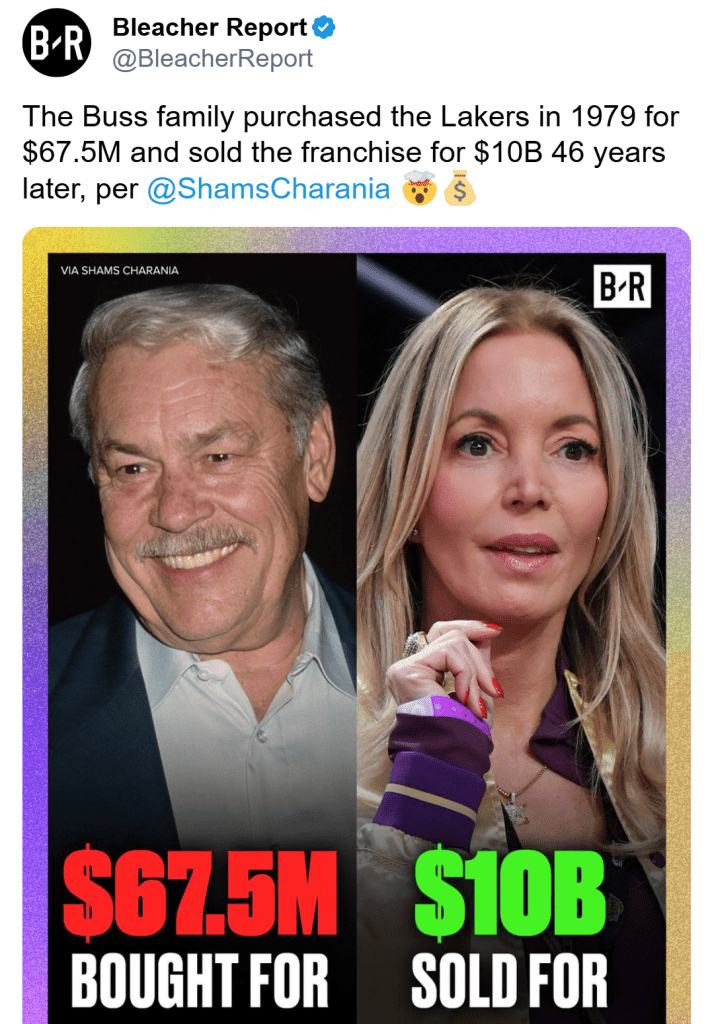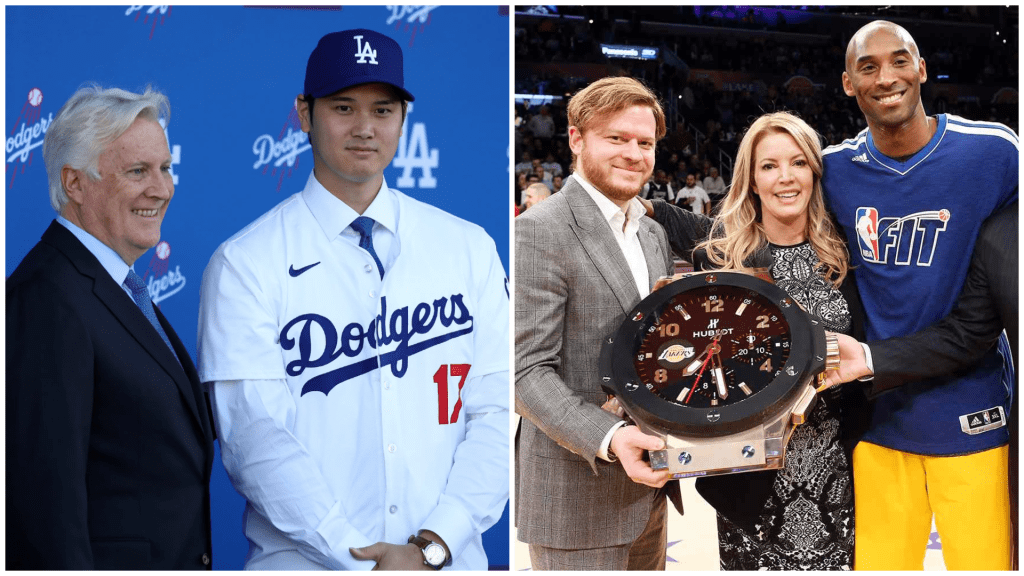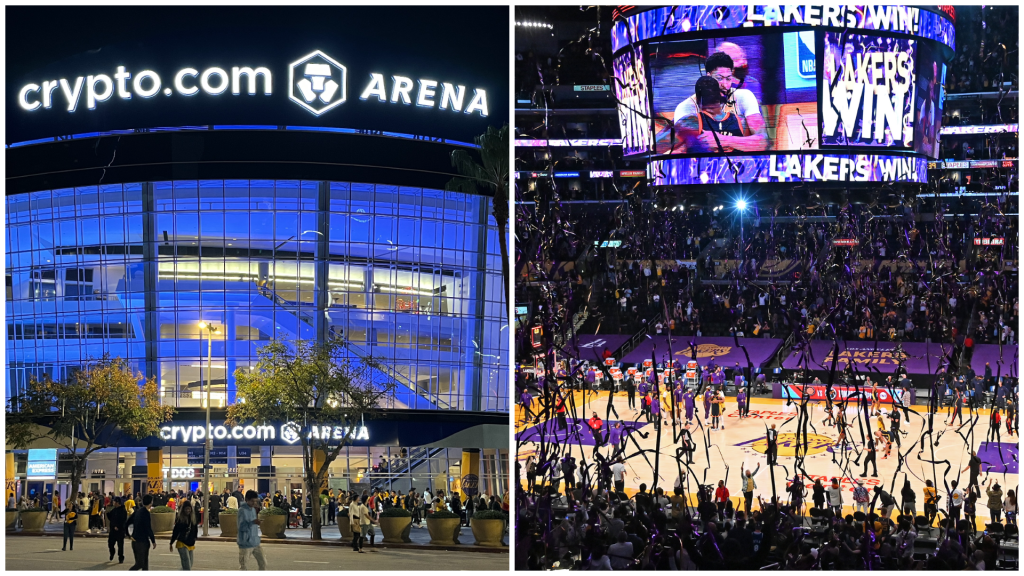Historic NBA Shake-Up: Lakers Majority Ownership Handed Over to Mark Walter in Record-Breaking $10 Billion Deal!

A Legendary Ownership Era Comes to a Turning Point
It happened just this week—a stunning shift in the landscape of professional sports. The Buss family, who have owned the Lakers since 1979, have reportedly sold majority ownership in their legendary team to Mark Walter, the same businessman who owns the Dodgers. But what does this mean for the Lakers, their fans, and the future of the franchise?

Imagine the roar of the crowd at the Forum or Staples Center—the banners hanging, the Showtime era on full display. That legacy began with Jerry Buss, who bought the Lakers along with the Kings and the Forum back in 1979. Over the next 40+ years, under his leadership and later his daughter Jeanie, the Lakers became a symbol of basketball greatness. With 17 NBA titles, global fanfare, and countless Hall of Famers, the Lakers became more than just a team—they became a brand.
After Jerry Buss passed away in 2013, control of the team passed to Jeanie Buss, who became the face of the organization. She held the title of governor and made major basketball decisions. But as the team’s value climbed higher—now estimated at $10 billion—the pressure to manage such a valuable asset started to grow.
Financial experts have long pointed out that while the Buss family owned the team, their income largely depended on it too. They didn’t have billion-dollar tech companies or massive portfolios behind them. So for the Buss siblings, selling some of their stake in the team wasn’t just a business move—it was about real money, real security, and perhaps a time to shift gears.
Now, that time has come.
Mark Walter Steps Up—A New Chapter Begins

Mark Walter is not new to the sports world. He’s the CEO of Guggenheim Partners and TWG Global, and he already owned a 20% stake in the Lakers. But now, he’s reportedly secured majority ownership in a deal that values the team at $10 billion—making it the largest sale ever of an American professional sports team.
Walter also owns the Los Angeles Dodgers, co-owns the WNBA’s LA Sparks, and has a stake in Chelsea FC in the Premier League. He’s building a powerful sports empire that stretches across different leagues and continents. Buying most of the Lakers isn’t just another trophy in his case—it’s a massive power move in the sports business world.
What makes this unique is that Jeanie Buss will stay on as the team’s governor, meaning she will still represent the team in league meetings and retain leadership power—at least in the short term. ESPN and multiple outlets confirmed this point, making it clear that while ownership is changing hands, the Buss name will still be involved in the Lakers’ day-to-day identity.
Still, it’s impossible to ignore the shift. While Jeanie remains the public face, decisions will now likely be influenced—or even directed—by Walter and his team. Fans are left wondering: what kind of owner will he be?
What This Means for the Lakers—and Why Fans Are Watching Closely
This sale is more than just a headline. It signals a turning point, not just for the Lakers, but for how we view modern sports ownership. So what’s actually changing, and what should fans expect?

1. A Bigger Wallet Behind the Curtain
Walter is known for making big investments in the Dodgers, from building up their roster to enhancing fan experience. Lakers fans are hoping he brings that same mindset to basketball. Maybe that means deeper front office support, higher payroll flexibility, or even facilities improvements. It could also mean more aggressive roster decisions—something the Lakers have been criticized for lacking in recent years.
2. New Power, Old Voice
With Jeanie Buss staying on, there’s some stability. She knows the culture. She’s connected to the fans. And she’s been involved in the league for decades. But let’s be honest—when someone else owns more than 50%, their voice gets louder. In time, Jeanie’s role could become more symbolic than strategic, depending on how much Walter wants to take the reins.
3. A Symbol of Where Sports Are Headed
This deal is about more than the Lakers. It’s about the money flowing into sports. Just last year, the Celtics sold a majority stake for over $6 billion. Now the Lakers have blown that number out of the water. Franchises aren’t just teams anymore—they’re mega-assets. Global brands. Billion-dollar business machines.
For fans, that’s both exciting and scary. Will owners chase profits or championships? Will teams lose their soul—or find new ways to win?
The Fan Reactions and the Future
As expected, fans across the internet had opinions—and lots of them. On Reddit, Lakers supporters dropped comments like:
“This is wild. Never thought I’d see the Buss era end like this.”
“I just hope Walter treats the Lakers like he treated the Dodgers—big moves, smart management.”
Some are cautiously hopeful, others worried about long-term direction. Many simply feel emotional—after all, the Buss family and the Lakers were one and the same for decades. Changing that means rewriting part of basketball’s most iconic story.
So what’s next? Official NBA approval is still needed, and we haven’t seen a formal press conference yet. But the details are clear: the Buss family is handing over majority control, and Mark Walter is stepping into one of the biggest roles in sports.
Final Thoughts
This moment is the end of one era—and the start of another. The Lakers, once held tightly by a single family, now join the growing list of super teams backed by billionaires and investment groups. Whether this will lead to a new dynasty or a slow culture shift remains to be seen.
But one thing is clear: the Lakers aren’t just playing on the court anymore—they’re playing in the global business arena.
And now, all eyes are on what this next chapter will look like.